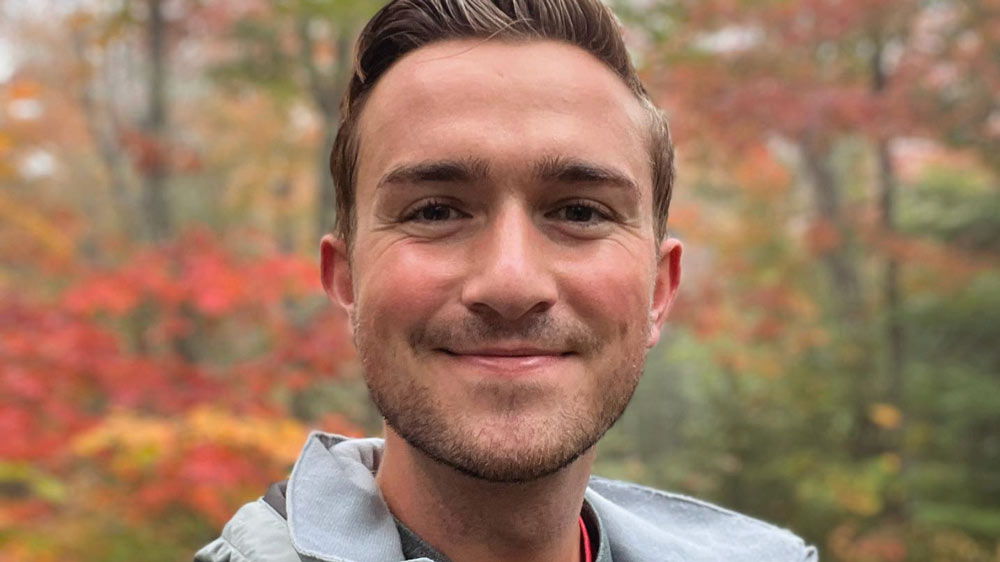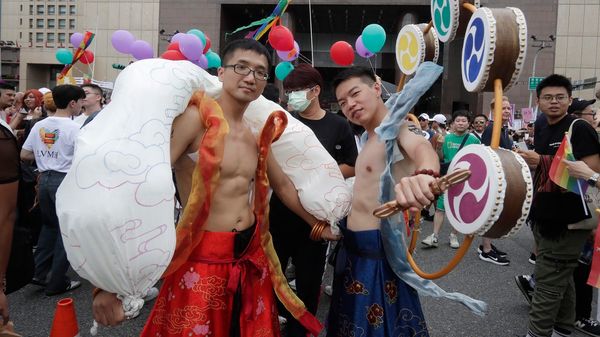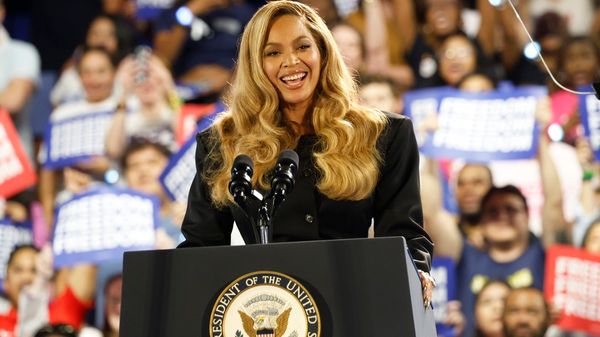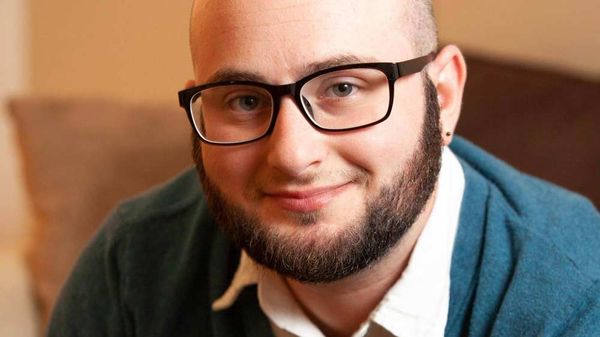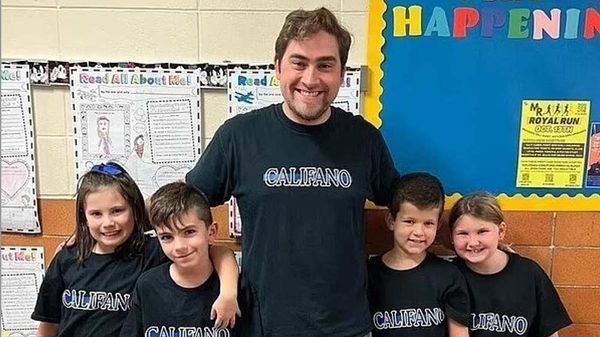January 2, 2008
MassEquality Campaign Director Marc Solomon: Regrouping after a devastating loss
Michael Wood READ TIME: 5 MIN.
After all of the victory rallies and gala celebrations that followed the June 14 defeat of the marriage amendment, it's hard to remember how bleak things looked at the beginning of 2007. The prior November, marriage equality advocates all but declared victory after they succeeded in pushing the vote on the amendment back to Jan. 2, the last day of the session. Activists on both sides expected lawmakers to stay home, letting the amendment die without a vote. But then the Supreme Judicial Court lobbed a monkey wrench into that plan, releasing an opinion that December saying that they felt lawmakers were obligated to take a vote on the amendment. That opinion, combined with a series of rallies held across the state by VoteOnMarriage.org to demand an up-or-down vote on the amendment, spurred lawmakers to come back the State House on Jan. 2 and take the first of two votes needed to place the amendment on the ballot. The defeat at the Jan. 2 ConCon was arguably the greatest blow to the marriage equality movement.
For Marc Solomon, campaign director of MassEquality and the man tasked with leading the massive coalition of LGBT organizations, lawmakers, canvassers, lobbyists and volunteers working to defeat the amendment, it was devastating to watch the November victory unravel, culminating in the Jan. 2 vote. And while many of MassEquality's allies were breaking out the champagne to toast Deval Patrick's election as governor, Solomon had to grapple with how to bring the marriage movement back from its greatest defeat.
"Going to the celebration of the inauguration, seeing a lot of legislators, having them say, 'Ah, you have this thing won, you guys are in great shape, we should be able to take care of this in two weeks.' And I was really unhappy. I was like, 'How? How are we going to win this in two weeks?' ... The hardest part was after that week of Deval being sworn in, was how are we going to go out and re-galvanize the troops? And I was like, that seems to be the most important thing that we can do. We needed to galvanize our donors; we needed to galvanize our membership base, our advocates," said Solomon.
For three weeks in January, Solomon and MassEquality staff went on the road to do just that, holding about a dozen forums in cities and towns across the state to rally the troops and let them know that MassEquality planned to come back strong at the next ConCon.
In short order MassEquality put together a comprehensive strategy to pick up the nine votes they needed to pull together the three-quarters supermajority needed to defeat the marriage amendment, votes that by necessity would need to come from some of the most socially conservative lawmakers in the legislature. They compiled detailed dossiers on all of their targeted lawmakers, assigned one field staffer to every one or two targets, and got some top tier allies like Ted Kennedy and members of the Massachusetts congressional delegation, as well as members of the targeted lawmakers' inner circles, to pick up the phone and make a personal plea to switch their votes.
Solomon said winning over some lawmakers was more than a matter of flexing political muscle; it was about making personal connections with them, finding common ground with lawmakers from conservative districts and conservative voting records. When Solomon went to meet Webster Rep. Paul Kujawski for the first time, he put off discussing the marriage amendment in favor of a topic close to both of their hearts, baseball.
"I remember going into Kujo's office, who's become a real close friend, and going in and seeing he had Tony LaRussa's photograph, the manager of the [St. Louis] Cardinals, he had his photo on the wall signed," said Solomon. "I played baseball in high school and I'm a big baseball fan and I'm from Missouri, so I was like, gosh, where'd you get the LaRussa signed picture? So then we ended up talking. He played baseball in college and is a huge baseball fan, and we talked about baseball for a long time."
Kujawski, a lawmaker with a strong pro-life and conservative voting record, said the baseball chitchat helped break the ice, but it was the meetings Solomon arranged with people in his district that sealed the deal.
"What he really wanted me to do was listen to as many possible constituents of mine whose lives would be affected, and relay those stories back to me and for me to understand that it was how their lives, how they would be affected by this issue and the vote that would be taken," said Kujawski.
Solomon said just as crucial to the lobbying effort was the work of Patrick, House Speaker Sal DiMasi, and Senate President Therese Murray in lobbying the potential vote-switchers.
As difficult as it was swinging those final nine votes, at times Solomon said it was also a challenge to keep the MassEquality coalition together.
"There were all sorts of side dramas going on, from internal stuff going on, internal coalition things, organizations disagreeing with one another, to internal legislative things, legislators jockeying, and the new relationship between the speaker, the governor and the senate president, all of that was all a dynamic," said Solomon.
He said navigating those conflicts often meant trying not to lose sight of the bigger picture.
Even after MassEquality's victory at the June 14 ConCon some of those internal tensions within the coalition persisted. The MassEquality board of directors voted last month to expand the organization's mission to encompass the range of LGBT issues beyond marriage equality, but some board members publicly complained that MassEquality was going in the wrong direction by broadening its focus. Solomon said despite the disagreements he had little concern the board would vote to dissolve the organization following the defeat of the marriage amendment.
"Why would you ever give up political power earned by the gay community, through the blood, sweat, tears and dollars of the LGBT community?" said Solomon. "Why would you just sort of unilaterally disarm? It just made no sense to me."
Taking the organization forward, Solomon said MassEquality's mission will be to make Massachusetts, and beyond that New England, into the most progressive place in the country for LGBT people. He said issues like transgender rights, youth issues and elder issues may not mobilize the same broad-based movement that marriage did, but with MassEquality's hard-won political power the organization can still serve as a powerful advocate on those issues.
"We're not deluding ourselves. We will not get the same level of passion on any other issue that I can envision. Nothing in Massachusetts or around the country as I see it galvanizes like the marriage issue. ... But we don't need the same. It was so huge, so dramatic to win marriage and then to hold onto it, to get 75 percent of the legislature to be on our side. We don't need to have that to have a lot of political power, political clout," said Solomon. "And the other thing is we have these affiliates around the state and activists and members who have become incredibly politically sophisticated, and they have close relationships with their legislators. So we're not starting from scratch."
Michael Wood is a contributor and Editorial Assistant for EDGE Publications.
